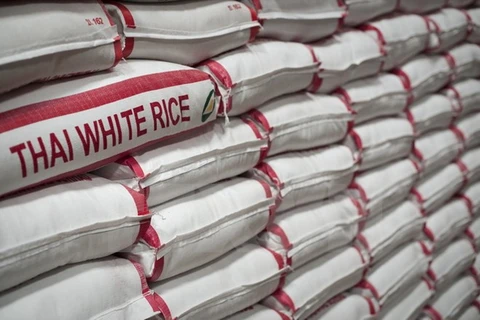Since the current government of Thailand came into power in May 2014, a total of 14.8 million tonnes of state rice stocks have been sold through auctions, fetching 135 billion THB.
The Thai Rice Exporters Association reported the country shipped 2.78 million tonnes of rice the first three months this year, earning 44.09 billion THB, up 3.1 percent in volume and 9.5 percent in value year-on-year.
Thailand was the world's rice top exporter for January to March, followed by India with 2.59 million tonnes (down 20.8 percent), Pakistan with 1.2 million tonnes (up 38.9 percent), Vietnam with 1.05 million tonnes (down 20.5 percent), and the US 830,000 tonnes (down 19.1 percent).
The association reported rice shipments dropped 9 percent in March to 864,938 tonnes, worth 13.78 billion THB, down 7.6 percent from the same month last year. The drop was largely due to lower purchase orders on relatively high rice prices.-VNA
Thailand to export 8.5 mln tonnes of rice in 2013
Thailand will boost its export of rice in December to raise the year’s total export volume to 8.5 million tonnes for a value of 171.3 billion baht (5.32 billion USD), said the Thai Department of Foreign Trade.






















